The paper published in BMC Public Health analyses the gender inequities in accessing Publicly Funded Health Insurance Schemes (PFHIS) in the Southern States of India using data from the National Family Health Surveys to measure impact on universal health coverage....
Health Financing Progress Matrix assessment: Pakistan 2023
This report provides a summary of findings and recommendations based on the Health Financing Progress Matrix assessment in Pakistan. In addition to identifying strengths and weaknesses in Pakistan’s health financing system, priority areas are highlighted in order to...
White paper on Indonesia’s health financing system (2023-2034)
The Centre for Indonesia's Strategic Development and Initiatives recently published and launched a White Paper on Indonesia's Health Sector Development (2024-2023). The Paper includes 14 Chapters. This Chapter titled Invest Wisely, Execute Strategically, Achieve More-...

Colombia introduces junk food tax
Colombia has implemented a tax on ultra-processed foods, becoming one of the first countries in the Americas to take such a measure to tackle obesity, diabetes, and other lifestyle diseases.The Lancet reports that Colombia is one of the first to tax food high in salt...
Health financing progress matrix assessment: Uganda 2023
This WHO report provides a concise summary of the Health Financing Progress Matrix assessment in Uganda, conducted as part of the mid-term review of the national health financing strategy. The report was conducted using a highly participatory process, with the...
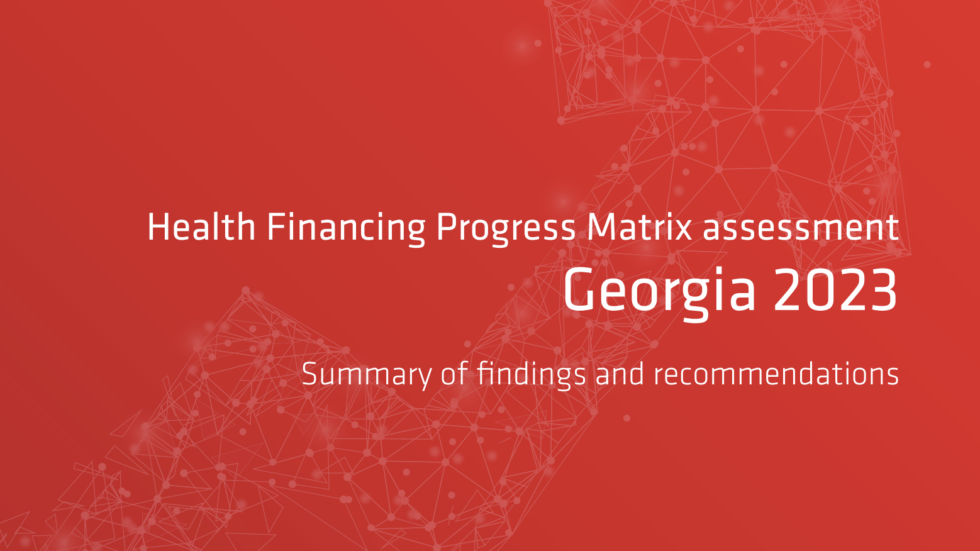
Health financing progress matrix assessment: Georgia 2023
This report from the World Health Organization provides a concise summary of the Health Financing Progress Matrix assessment in Georgia, where WHO has a long engagement on health financing issues. Overview The report was conducted using a highly participatory process,...
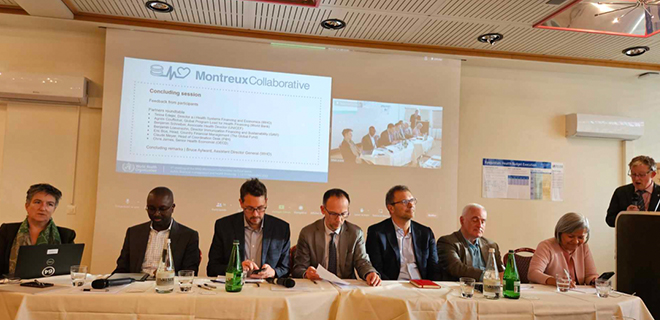
Montreux Collaborative
The Montreux Collaborative is a WHO led platform for collaboration between countries and development partners. It aims to generate and disseminate global and country evidence on how to make budgets work for health, with a specific focus on transforming budget...
Health financing policies during the COVID-19 pandemic and implications for universal health care
A research paper published in the December 2023 Issue of the Lancet Global Health on how 15 countries responded to the COVID-19 pandemic through their health financing policies. The paper has been co-authored by Aungsumalee Pholpark, Community Facilitator for the Asia...
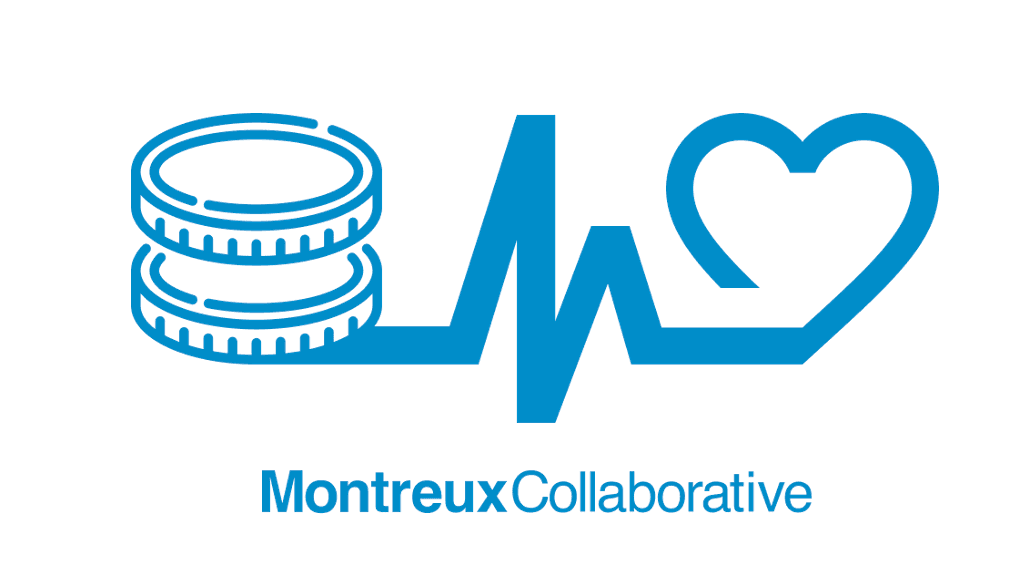
6th Meeting of the Montreux Collaborative on Fiscal Space, Public Financial Management and Health Financing
13-17 November | Eden Hotel in Montreux, Switzerland Theme: Adjusting Public Financial Management (PFM) for better health: new evidence to shape next-generation reforms The Meeting Report on this year's Montreux Collaborative on fiscal space, public financial...
Understanding international measures of health spending
Age-adjusting expenditure on health A part of the Organisation for Economic Co-operation and Development (OECD) Health Working Papers series, this paper assesses health system performance over time or across countries often means comparing populations with age...
Efficiency of Health Systems in Middle-Income Countries and Determinants of Efficiency in Latin American and the Caribbean
Inter-American Development Bank publication estimates the efficiency of health spending in 145 middle and high- income and the potential gains from improving efficiency for a range of health system outputs using Data Envelopment Analysis for 2010- 2014 and 2015- 2019...
What drives health care spending in Switzerland?
Findings from a decomposition by disease, health service, sex, and age BMC Health Services Research study decomposes healthcare spending by diseases and other perspectives and estimates the contribution of single cost drivers to overall healthcare spending growth in...
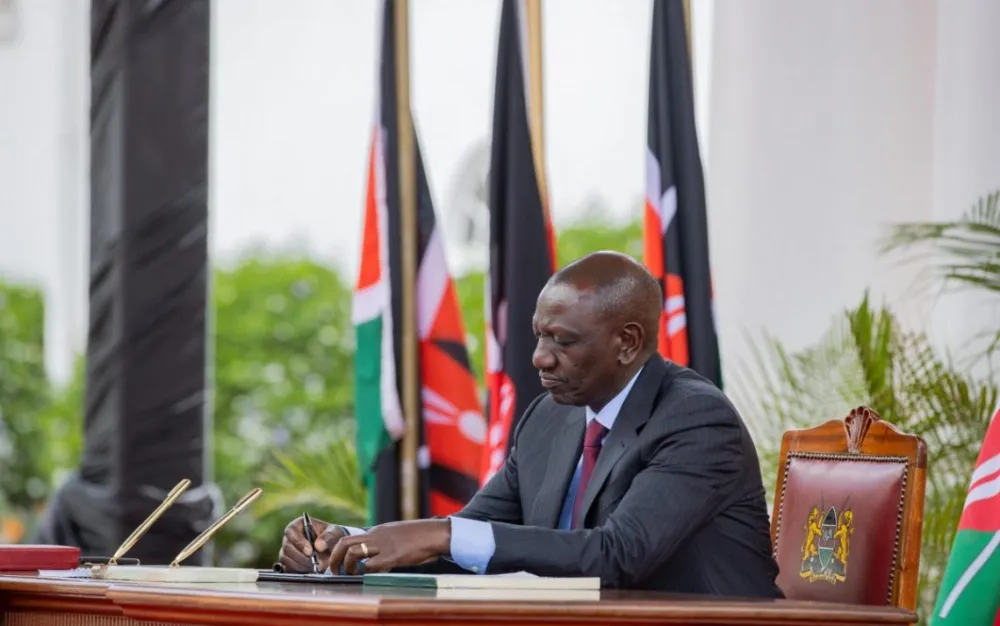
Kenya: President signs four new healthcare bills into law
On 17 October, Kenya's President, William Ruto signed the four healthcare bills, Social Health Insurance Bill, Primary Health Care Bill, Facility Improvement Financing Bill, and Digital Health Bill into law after they were passed by the Parliament recently.The Social...

Reducing fragmentation to improve efficiency: lessons from countries (Webinar)
Thursday 26 October | 1400 h CET The WHO Health Financing and Economics (HFE) Department is organizing a Webinar to demonstrate the WHO Cross-Programmatic Efficiency Analysis (CPEA)While health programmes are critical to advocate and provide access to priority...
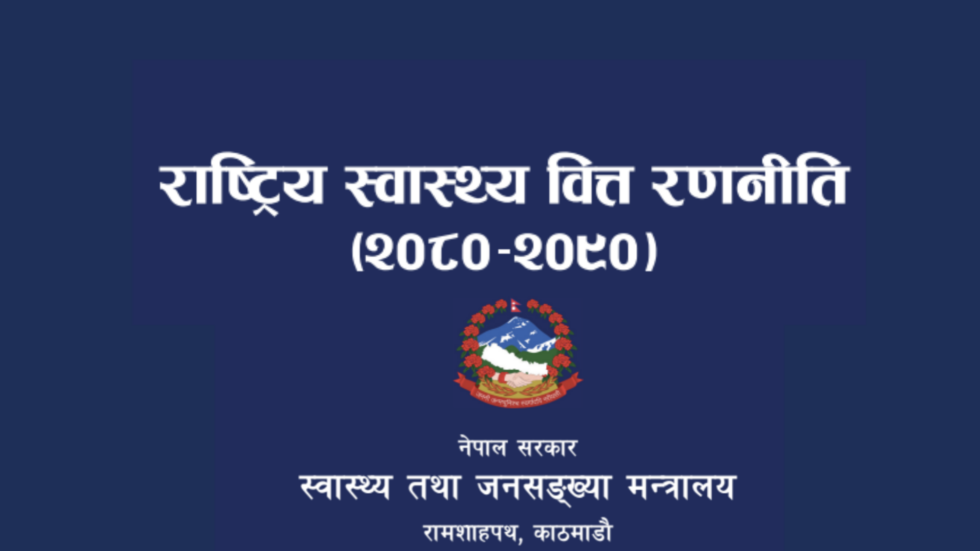
Nepal: National Health Financing Strategy 2023- 2033
The Government of Nepal has recently endorsed a new ten-year strategy for health financing with the aim of ensuring equitable financial management to achieve universal health coverage (UHC) in Nepal. The National Health Financing Strategy 2080- 2090 includes strategic...
